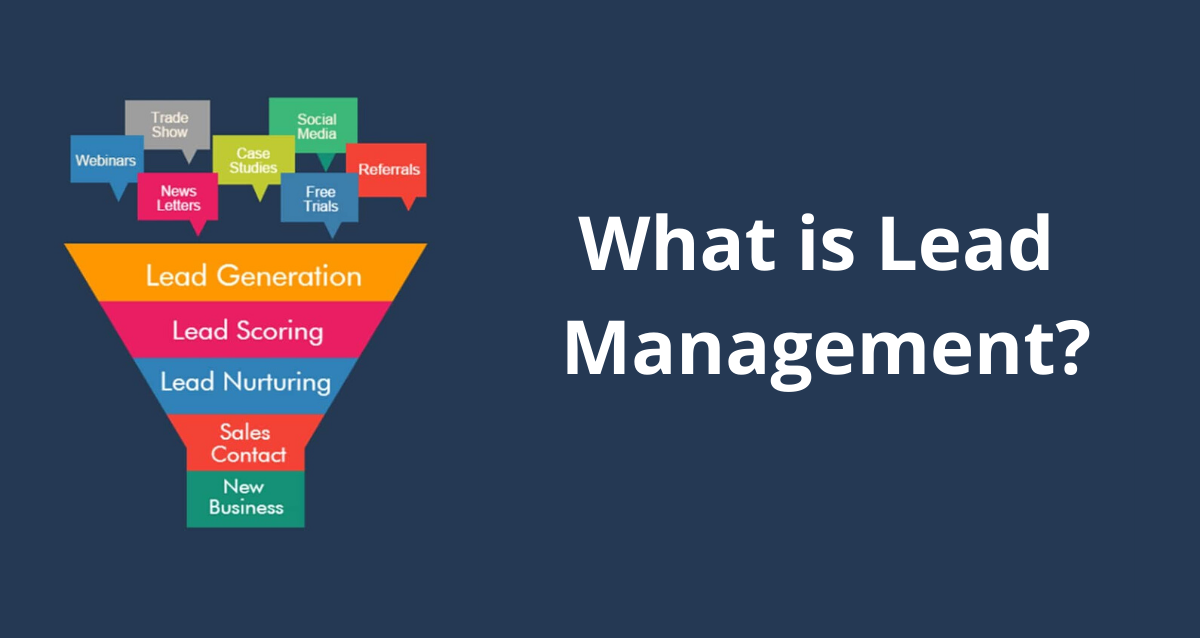The Future of Lead Management: Trends and Predictions
Education
Lead management is the process of identifying, qualifying, nurturing, and converting potential customers, known as leads, into paying customers. It involves a set of practices, strategies, and tools used by sales and marketing teams to manage and optimize the lead lifecycle.
Here are the steps involved in the lead management process:
Lead generation: The process of attracting potential customers to a business through various marketing channels, such as social media, email marketing, search engine optimization, and advertising.
Lead qualification: The process of determining whether a lead is a good fit for the business based on various criteria, such as their level of interest, budget, and authority to make purchasing decisions.
Lead nurturing: The process of engaging with leads and providing them with relevant information and resources to build trust and establish a relationship with them.
Sales readiness: The process of identifying when a lead is ready to make a purchase and passing them on to the sales team for further follow-up.
Lead conversion: The process of turning a lead into a paying customer through sales and marketing efforts.
Tools used in lead management include customer relationship management (CRM) software, marketing automation tools, lead scoring systems, and analytics platforms to track and measure the effectiveness of lead management strategies.
Best practices for lead management include:
- Developing a lead scoring system to prioritize leads based on their level of engagement and likelihood to convert.
- Creating targeted, personalized content to engage with leads and nurture them through the sales funnel.
- Aligning sales and marketing teams to ensure a seamless lead management process.
- Regularly analyzing and optimizing lead management strategies based on data and insights.
- Maintaining a strong focus on customer experience throughout the lead management process.
By following these best practices and utilizing the right tools, businesses can effectively manage leads and improve their chances of converting them into paying customers
Here are some trends and predictions for the future of lead management:
Increased use of AI and automation: Artificial intelligence and automation are already being used to streamline lead management processes, and this trend is expected to continue in the future. AI-powered chatbots and virtual assistants can handle routine tasks and free up sales and marketing teams to focus on more strategic activities.
Greater emphasis on personalization: Consumers are increasingly expecting personalized experiences, and lead management will need to reflect this trend. Lead nurturing campaigns will become more targeted and tailored to individual needs and preferences.
Integration of data sources: Companies will need to integrate data from various sources, such as social media, email, and website analytics, to gain a complete view of the assignment help customer and make more informed decisions.
Increased focus on mobile optimization: With more consumers accessing the internet through mobile devices, lead management will need to prioritize mobile optimization to ensure that the user experience is seamless across all devices.
Greater use of social media for lead generation: Social media platforms are becoming increasingly popular for lead generation, and this trend is expected to continue in the future. Companies will need to have a strong social media presence and use social listening tools to monitor conversations and engage with potential leads for do my assignment company.
Overall, the future of lead management is likely to be characterized by greater use of technology, increased personalization, and a focus on data-driven decision-making. Companies that can adapt to these trends and deliver a seamless customer experience will be well-positioned to succeed in the years ahead.





